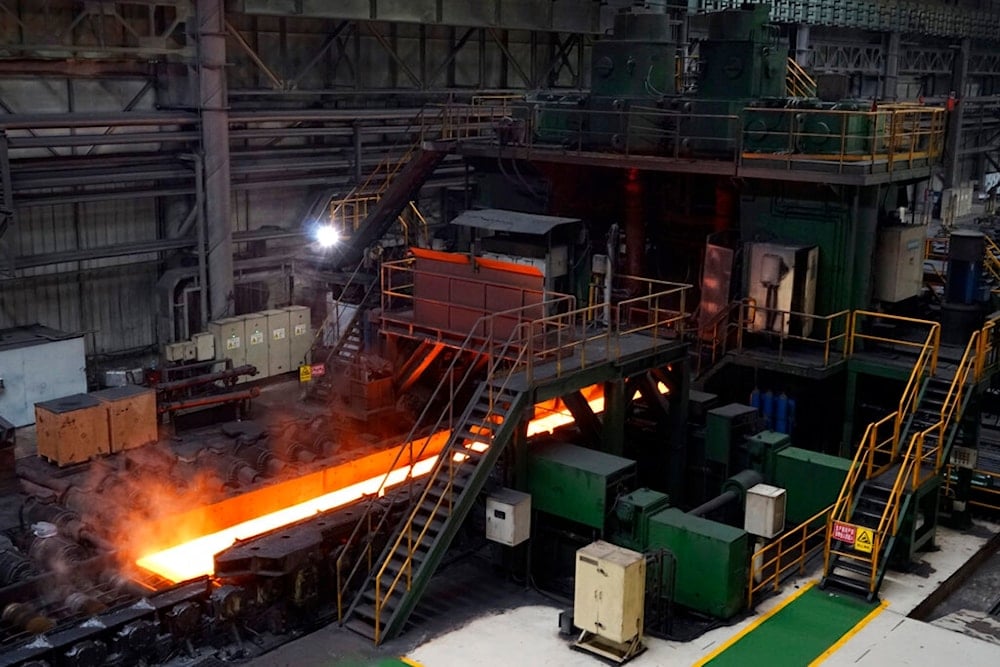China files WTO case against Canadian tariffs on steel, goods
China has taken Canada to the WTO over new steel tariffs, denouncing them as protectionist, WTO-violating measures that threaten global supply chains and blaming US trade policies for Canada’s steel industry woes.
-

In this July 24, 2019, photo, red-hot steel rolls along a conveyor inside a mill of Ansteel's Bayuquan Production Base in Yingkou in northeastern China's Liaoning Province (AP)
China has filed a formal complaint at the World Trade Organization against Canada's newly imposed tariffs on steel and other imports, the Ministry of Commerce confirmed on Friday.
The case focuses on Ottawa's July decision to apply an additional 25% duty on Chinese-made steel products imported from countries other than the United States, beginning August 1.
The move followed a series of Canadian trade actions targeting Chinese goods, including earlier measures against electric vehicles, and comes against the backdrop of Ottawa aligning more closely with Washington's protectionist stance.
"On August 15, China filed a complaint with the WTO against Canada over restrictions on imports of steel and other goods. In violation of WTO rules, Canada imposed tariffs on steel imports and established discriminatory duties on goods containing so-called 'Chinese steel'," a ministry spokesperson said.
Beijing has cast these measures as emblematic of a wider shift toward unilateralism and protectionism in Western trade policy, warning they threaten to destabilize global supply chains in steel and other key industries.
"We urge Canada to immediately take measures to correct its erroneous practices, comply with the rules-based multilateral trading system, and promote sustainable improvement of China-Canada trade and economic relations," the spokesperson added.
Retaliatory Trade Spiral
China's challenge at the WTO comes amid a broader cycle of retaliatory trade actions. In recent weeks, Beijing has imposed steep anti-dumping duties, up to 75.8%, on Canadian canola seed, following earlier restrictions on canola oil and meal. These measures have dealt a heavy blow to Canada's agricultural exports, mirroring the impact that Ottawa's steel tariffs are expected to have on Chinese producers.
Chinese officials have consistently maintained that Canada's steel industry woes are rooted not in competition from Chinese producers but in the tariffs Washington placed on steel years earlier, which continue to distort global trade flows. On July 18, the Ministry of Commerce stated that "the main reason for the difficulties faced by the Canadian steel industry is the tariffs imposed by the United States."
This dispute feeds into a wider global trend of escalating trade barriers, with major economies increasingly bypassing multilateral solutions in favor of politically driven economic measures, a shift WTO officials warn risks undermining the international trading system.
Read more: WTO Chief warns of global trade contraction as US tariffs spark alarm

 3 Min Read
3 Min Read










